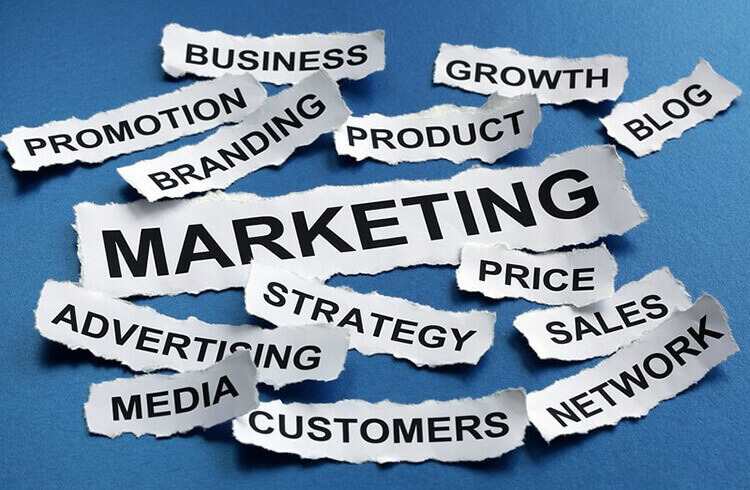
The 5 Basic Tenets of Effective Marketing for Mental Health Practices
Written by Curtis Reed, Posted on , in Section Marketing Your Practice Or Program
What is “basic marketing” for mental health practices and programs? The truth is that there is nothing basic about behavioral health marketing.
It may be true that there are basic principles and simple foundational essentials to marketing for mental health businesses. But to get the opportunity to improve and enhance a person's life, your marketing campaigns must do more than the basics. You'll need to be convincing and portray yourself and your practice as being able, safe, and trustworthy.
"Unless all of your new clients are referred by credible sources who accurately describe your unique value, you'll need to nail the basic tenets of marketing or your practice will suffer."
The basic tenets of successful mental health marketing are; understanding, safety, trust, expertise, and experience. To be successful in your marketing you must be able to assure people that you understand what they need, you have the experience to meet their needs, you can be trusted, and working with you will be a safe experience that will enhance and empower their lives. Moreover, you must be able to assure hurting people that you are "naturally therapeutic" - caring, empathetic, and genuine.
assure hurting people that you are "naturally therapeutic" - caring, empathetic, and genuine.
Your ability to articulate your unique marketing message to a specific audience for the purpose of generating new client referrals will determine the success of your mental health practice or therapeutic program. Essentially, your task as a marketer is to convey your value proposition to prospective clients - AND - gently persuade them that your mental health services are safe, reliable, and will solve their immediate problems. You must be seen as the safe solution to their personal pain while offering a sense of hope.
"Basic marketing strategies for behavioral health programs involves the process of bringing awareness to your mental health practice or behavioral health program services, while educating your preferred audience about your unique value proposition. If they view you as their solution they will seek you out."
Your Marketing Must Answer a Simple Question
Effective marketing in the behavioral health arena is dependent upon your ability to answer the following question, “how can you safely help me improve my life?”
As stated before your marketing message must authentically convey safety, trust, and hope or you will not get the opportunity to serve anybody. More importantly, when your marketing message clearly satisfies their main question and leads them to trust you, then you are on the right track. At the very least they will seek to learn more about you.
“To put it a bluntly, basic marketing for mental health practitioners is about telling people “how and why” they should trust you. You have a short window of opportunity to convince them, and you might not get a second chance.”
If your marketing message does not compel people to take a deeper look at you or your practice, you'll be quickly overlooked and forgotten. Therefore, your basic marketing objective is to effectively articulate how you can serve folk’s immediate needs (emotional, mental, and behavioral) better than anyone else.
If this sounds like an awesome challenge it's because it is - there are very few more difficult marketing challenges than those of mental health practitiioners. Again, there is nothing basic about behavioral health or mental health marketing.
The 5 Tenets of Mental Health Marketing
Effective mental health marketing starts by considering the emotional and mental condition of your prospective client. Using gentleness and sensitivity, your task is to be the encouragement they are looking for, the light at the end of the tunnel, the messenger of hope. If your  message is right, the prospective client will be more likely to seek you out and engage your business.
message is right, the prospective client will be more likely to seek you out and engage your business.
Your marketing message must meet the prospective client where they are, sending out the vibe that you understand their pain, you're safe, and you have the expertise and experience to help them to rebuild and be restored. Your message must transmit the notion that you've done it before, and you can do it again.
If your marketing message helps prospective clients to see themselves as being "healed" or "restored," then you've done your job. But for goodness sakes, do not over promise or deceive them. Don't make promises you can't deliver.
Understanding: The marketer's quest is to convince prospective client's that they are understood. Meaning, through your marketing message you must prove that you understand how they feel and that you respect their values and principles.
Showing respect for their values is one of the most prominent ways to demonstrate understanding. As a mental health practitioner or behavioral health professional, this task should be easy. But it's not, at least not from a marketing standpoint.
Even though you are naturally therapeutic, understanding, and experienced, demonstrating this truth is hard work. Your message will either resonate and convey "understanding" or it won't. Your values, as presented through your marketing message will either connect with prospective clients or it won't.
My recommendation is that you be prepared to hone your message until you find something that works. Find a way to present your values (what is important to you) in a way that is felt, heard, and appreciated. For example, if your practice is centered on marriage and family counseling, your values should be in alignment with "family." The values you present in your marketing message should reinforce "unconditional love" and "faithfulness," both of which are in alignment with marriage and family.
"When presenting your marketing message be careful not to be egocentric. Meaning, the client's hope is not, or about you. Instead, send the message that their hope is in them, and that you might be the catalyst that helps them to overcome their struggle - if they are willing and will put in the hard work."
A former client of mine found a simple message that worked very well with his unique audience. It took years to come up with the right marketing message, but once he did it made all the difference in the world. He kept working with his message until it worked.
My client was a therapist offering clinical services to Christians. Part of his marketing message was, "Jesus is the only answer!" My client told me that if he had a nickel for every time a new client mentioned "Jesus is the only answer!" as their deciding factor in choosing him, he would never have to charge for services. His clients understood the marketing message and it aligned with their values.
Safety: The feeling of "safety" is a prerequisite for building trust. From a clinical perspective, there is no possibility of emotional growth without a real sense of safety. As you already know, the success between a practitioner and his or her client is dependent upon the trust bond. Your marketing message must assure a sense of safety. Safety comes first.
The first chance to transmit a sense of "safety" is through your marketing message. As you know, clients who feel emotionally safe are positioned to contribute to their own therapeutic process. The same is true about choosing a practitioner or program. If people feel safe about you, it increases the chance that they will choose you to help them.
"If your marekting message promotes safety it may also promote a sense of belonging. The prospective client might feel that they belong with you, and are open to receving treatment and therapy from your services."
Trust: Safety and trust are very similar and are connected at the hip. As stated before, for there to be a connection between a practitioner and a client there must be some form of trust bond, even if it is only a perception of trust to begin with. Trust bonds can be initiated, built, and strengthed through your marketing message.
Taking the former example from above, my Christian client's message obviously had a deeper meaning that resonated with his specific audience. They trusted him before they met him. Even though my client offered mental health services, his particular audience wanted to know that he understood their unique perspective and worldview. They wanted some form of trust that he shared their values, and his marketing message provided that trust. Faith was a very important part of their life, and very important in their decision to trust him with their emotional and mental well-being.
The common sentiment his clients shared with him was, "when I read 'Jesus is the only answer' I knew that you the right one to help me." (conveying trust). My client told me that his patients didn't seem to care about anything else he had to offer in his marketing message, and that they seem to trust because of that one sentence in his marketing message.
"What my client learned is that people seeking professional therapeutic services are concerned about trust, just like everyone else. They want to know that he shared their values. His message conveyed a much deeper meaning than the words suggest, a message that he could be trsuted. His message was perceived by his clients as a code for 'he shares my values.' "
From a marketing standpoint, trust is also the absence or reduction of risk. Your marketing message will resonate with your prospective clients if it creates the feeling of trust. Trust is a broad term that means many different things to different people depending upon the situation. Regarding mental health marketing, trust is related to "knowing what to expect". In other words, prospective clients want to know what to expect from you.
Expertise: The general public knows just enough about mental health treatment to barely feel comfortable in making a decision about mental health services. When a person feels emotionally overwhelmed, enough so to seek a professional they hope to find a "good match." Even if they don't know what a good match is, they still look for something that seems to match their situation.
People looking for mental health counseling might look at your credentials and competencies (specialties) and formulate a justification for their decision to choose you. However, more often than not they are looking for a sense comfort, and it most likely will come from your marketing message, and not your credentials. As long as your message describes your expertise in real terms, they will continue to look at what you have to offer. If your expertise is vague, or undefined, they will skip over you and move on to other practitioners or programs.
"If a struggling person thinks that that you are an expert related to their particular situation, they may consider contacting you. If they feel that you are highly-trained to deal with their struggle, they will take the next step toward validation. Their evaluation of your expertise is either a validation that you can help them, or a determination to keep looking."
Your expertise can be conveyed in your marketing message by sharing what your client's say about you. Meaning, your message should have some reference to what you're clients think about your services. Expertise can mean a lot of things, and might not be conveyed well by simply listing your licensure and training.
For example, women with depression might be looking for someone who is an expert in dealing with women's issues. Or, a CEO of a large company will want to know that you are an expert in dealing with depression associated with the high stress of the corporate world. In these two examples, the notion of "expertise" goes beyond your credentials and training.
Experience: Experience is different than expertise in the fact that "experience" relates more to your personal attributes rather than your professional expertise. Your "experience" is actually your client's experience of you, and is best defined by how your clients describe your personal care and concern.
For example, your clients might describe their experience of you as empathic, genuine, and caring. They might describe their experience of you as warm, engaging, and witty. Or, they might describe you as a being good listener, always present in the moment, and dependable.
Going back to what I described above, prospective clients want to know what to expect from you especially as it relates to "experience". If this is true, then your marketing message needs to take this into account. Make sure your marketing message describes what the client can expect as an experience of being under your care.
In Conclusion
Essentially, your task as a mental health marketer is to convey the value proposition of your service to prospective clients - AND - persuade them that your mental health services are safe, reliable, and will solve their immediate problems.
Your marketing message must meet the prospective client where they are, sending out the vibe that you understand their pain, you're safe, and you have the expertise and experience to help them to rebuild and be restored.
If your marketing message promotes safety, it must also promote a sense of belonging. The prospective client might feel that they belong with you, and they are willing to be open to receiving treatment and therapy from you.
Lastly, for there to be a connection between a practitioner and a client, there must be some form of trust bond, even if it is only a perception of trust, to begin with. Your marketing message must convey that you can be trusted.
Therapy Insider Partners with Mental and Behavioral Health Businesses
Therapy Insider is uniquely positioned to help mental health practitioners and programs cultivate new streams of referrals through native advertising and social media marketing. For more information, click here.
"Therapy Insider provides professional behavioral health businesses with the tools and acumen to leverage high-quality content as a strategy to build enhanced referral systems."
By providing professionals with advertising, “best practices”, “how-to guides”, “realtime analysis”, and “curated content,” Therapy Insider makes it easier for practitioners and programs to achieve cost-effective results through native advertising.
SPECIAL BONUS: Join Today and Get Your Own Blog
We Don't Just Make Your Business Visible Online...We Also Make YOU Famous! Publish Your Personal Articles for FREE!
The #1 way to gain instant credibility with potential clients is to publish articles online. Our powerful blog platform places your content directly into our news feeds, so you get noticed...and respected.
If you're not publishing regularly online, you are missing out on one of the greatest opportunities available for building your brand. People looking for your services want to know more about who they are dealing with, and reading your blogs, and informative articles help them build legitimacy and trust. Get Qualified Referrals From the Internet with ZERO Experience in Online Marketing.

